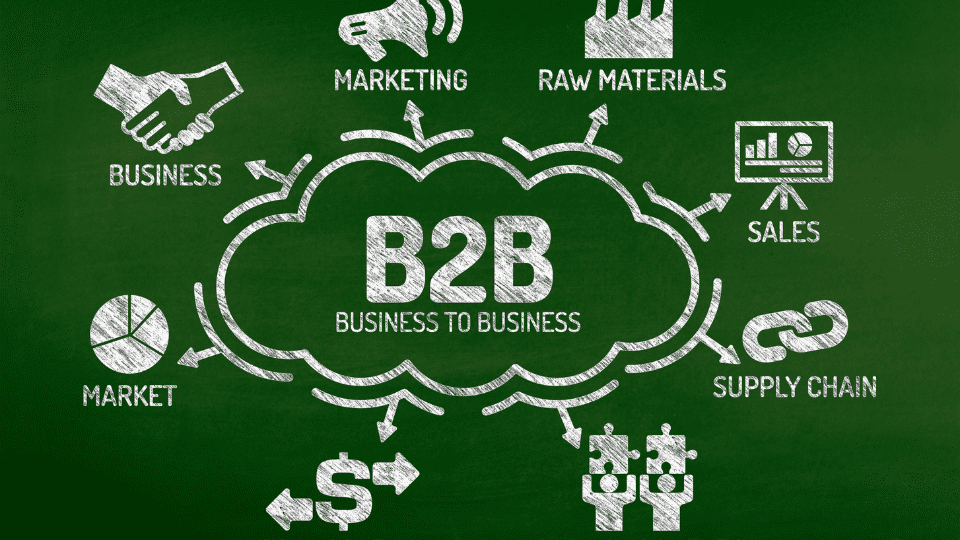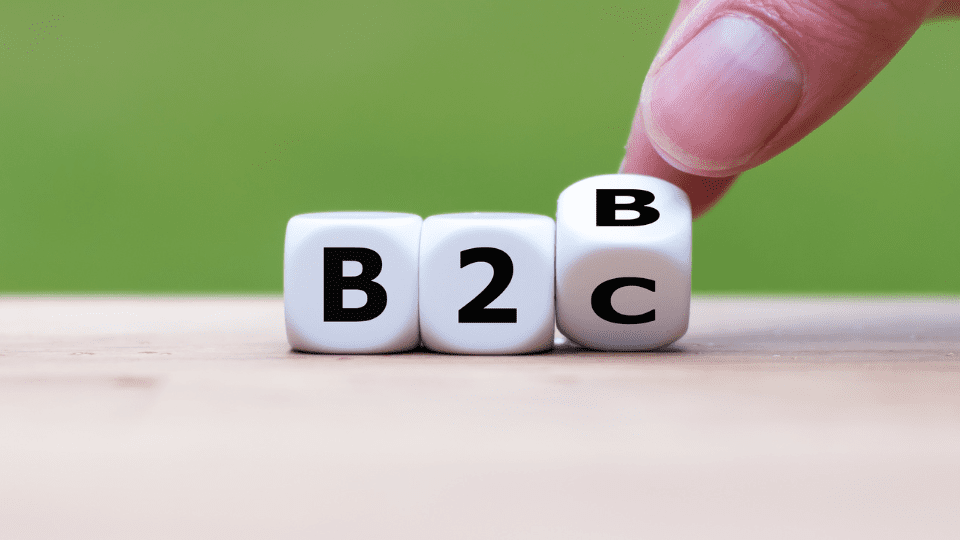People are now aware of B2B and B2C Mobile Apps. We no longer live without apps because they offer ease and simplicity that no other technology can equal. Simplified procedures benefit businesses and customers may purchase goods or book tickets on their smartphones with just a few taps! Applications are adaptable technological tools that can significantly influence both consumers and enterprises.
We may need to be made aware of the precise classification of an app from the general public’s standpoint because we use so many of them daily. However, it is still beneficial to thoroughly understand these categories when establishing an app or, if you are in business, considering producing one for your target market.

B2B App
Businesses utilize business-to-business (B2B) applications to communicate with their partners, typically intermediaries between the industry and the final customer. There can be a different set of applications for every sort of business, nevertheless.
A software program designed to facilitate business communication is known as a business-to-business (B2B) application. B2B apps are typically used for purchase orders, inventories, and other business operations management. They could also be employed to help with business-to-business or employee-to-customer communication. Although B2B app development come in various forms, they all aim to make organizations function more effectively. B2B app development can save expenses by automating some processes or giving users access to real-time data. The use of B2B apps will increase along with the use of mobile devices and cloud-based services.
Certain B2B app developments are available to the general public, while others are only available within the company. A few apps in this category are business apps made with a specific purpose, such as project planning or internal supply chain management.

B2C App
In 2024, users are expected to download more than 300 billion mobile apps. Most apps found in app stores are B2C, or business-to-consumer, apps. These applications are meant to be used independently by end users.
An application that allows businesses to sell products or services directly to customers is known as a business-to-consumer (B2C) app. B2C apps typically have a specific function, such as offering product details, facilitating purchases, or offering customer service. B2C app development help businesses cut expenses, boost client loyalty, and boost sales. B2C apps have grown to be among the most widely used categories of mobile applications because of the market’s broad reach and simplicity of use. Restaurants and other service-oriented enterprises can also use them. Features like wish lists, push alerts, and customer feedback are frequently available in B2C apps. B2C applications are, therefore, increasingly preferred for companies wishing to sell directly to customers. B2C apps include Netflix and Amazon.
B2C apps mostly come in two types
Standalone
A user can download a standalone B2C app from an app store and use it without any other software.
Mobile commerce (m-commerce)
This is a B2C app that enables users to buy goods and services directly from their smartphones.

B2B and B2C Mobile Apps differences
Lifespan
Because B2B apps are not influenced by the same cycles and fashion trends as B2C apps, they often have a longer lifespan. These factors make B2B app development distinct from B2C app development in terms of methodology.
Simplicity
While B2C apps are for consumers, B2B apps are for businesses to utilize. This indicates that compared to B2C apps, B2B apps typically offer more features and are more complicated. B2C apps need to have an intuitive user experience that is easy to use for everyone. Standing apart from the crowd with so many options might be challenging. However, developing an app that will succeed in the B2C market is possible by emphasizing simplicity and user experience.
Apps intended for consumers cannot handle the complexity of B2B apps. Because they are meant to increase efficiency, they can employ jargon and language specific to the business world. B2B apps often have a high learning curve because users are expected to put in some effort to understand how they operate.
Cost of Marketing
Building a sizable user base and gaining as many individual users as possible are the objectives of B2C marketing. App store optimization and user reviews/star ratings on well-known platforms are two ways to do this. However, more eyes will notice what’s there if you can get people talking about how amazing they think an application is.
Getting B2B users takes much work. In the B2B app space, a robust sales cycle is essential for success. This entails reaching out to influential individuals and making a lasting impression on them with your product before they completely commit to implementing it on their personal devices or corporate systems. Because of this, B2B apps have far greater marketing costs per lead than B2C apps.
Audience
While B2B apps target a specific demographic, B2C apps appeal to a larger one. B2B applications are typically aimed at particular markets. B2C apps are often accessible to anyone with a suitable device and intended for individual use.
B2C apps are more competitive since they can reach a wider audience. As a result, they can save time and money by being more optimized and focused. Additionally, B2B apps are more likely to develop traction and draw users because businesses use them extensively.
User Interface and User Experience
User interface and customer experience are essential for business-to-business and business-to-consumer applications alike. UI designers frequently do in-depth user research to create profitable and interesting apps for users. By analyzing patterns in color or style, they attempt to comprehend how various designs would emotionally connect with their users, even if it means intensifying urgency through animation techniques while solidifying certain emotions like peace through color selections.
Commercial Frameworks
App marketplaces that are B2B and B2C Mobile Apps use distinct revenue techniques. B2C apps depend more heavily on advertising and are frequently available for free download. These days, it’s common for businesses to offer subscriptions for their services. On the other hand, B2B apps are typically more expensive. Because business-to-business software frequently provides more value and specialized services than personal software, businesses are willing to pay a premium for B2B applications.
How do you decide if your company requires a B2B or B2C app?
Asking the proper questions is crucial before starting a drawn-out development process. As a stakeholder, you must understand the app’s goal and the issue it is trying to solve. Setting reasonable expectations for what the app can accomplish is also important. You should also be informed of app development’s possible dangers and difficulties.
Before releasing a mobile app for your company, you should determine whether a B2B and B2C Mobile Apps is necessary. Selecting the appropriate app type for your business is critical because each has special features and advantages. The following are some things to think about when choosing:
-What is the application’s goal? A business-to-business app is a superior choice if you want to enhance communication and teamwork within your organization. Nonetheless, a business-to-consumer (B2C) app is likely an exceptional choice to connect with customers and advertise your goods or services.
Who is the intended audience for you? Again, a B2B app is generally a better option if you’re seeking to reach other businesses. However, a B2C app will work better if you’re targeting consumers.
Which features are essential? Because B2B apps are typically more complex than B2C apps, you’ll want to confirm that the B2B app has the required features. On the other hand, if you don’t need every bell and whistle.
Conclusion
In conclusion, the awareness and integration of B2B and B2C Mobile Apps have transformed how businesses and consumers interact. These applications provide unparalleled ease and simplicity, streamlining business processes and enabling consumers to perform tasks with just a few taps on their smartphones. While the average user may not distinguish between B2B and B2C Mobile Apps in daily use, understanding these categories is crucial for businesses developing an app or targeting their market.




